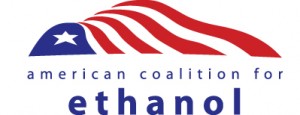Complaints Over E15 Decision Increase
 A number of different non-profit agencies, and even for-profit businesses, have stepped forward to challenge a recent decision by the Environmental Protection Agency to allow E15 to be sold in retail gasoline pumps for cars and trucks produced after 2007. Previously, the limit on ethanol was placed at a seemingly paltry level of 10% before October 13 when the EPA gave a waiver for sale of 15% ethanol gasoline mixtures.
A number of different non-profit agencies, and even for-profit businesses, have stepped forward to challenge a recent decision by the Environmental Protection Agency to allow E15 to be sold in retail gasoline pumps for cars and trucks produced after 2007. Previously, the limit on ethanol was placed at a seemingly paltry level of 10% before October 13 when the EPA gave a waiver for sale of 15% ethanol gasoline mixtures.
Among the most commonly complaint is that of safety and performance. Gallon for gallon, ethanol does not provide for the same performance in fuel burning engines, and in some cases, is more expensive per mile than pure gasoline.
Other critics challenge whether the new blend is safe for cars, drivers or the environment. Ethanol is an extremely corrosive fuel, one that cannot be transported by pipeline and may even cause more environmental damage in production than other, “dirtier” forms of energy such as crude oil or coal.
The final challenge from critics rests on the economic merits and effects of ethanol consumption. Each year, billions of bushels of corn and other farm products are used in the production of ethanol, which many contend is an economic waste. Each bushel consumed in the production of ethanol is one less bushel in the food supply, whether for direct human consumption or for farm animals, which leads to scarcity and higher prices in the grocery store.
So far the biggest damage has been attributed to small engines including small outboard boating motors and lawn equipment. Higher levels of ethanol are not only corrosive to engines, but mixes also have different explosive and burning profiles, which affects wear on the engine’s cylinders.
E15 is still largely untested by the US Department of Energy nor third-parties since its approval was mostly unanticipated. However, following the complaint of one of the leading players in the energy sector, the American Petroleum Institute, it is likely federal action will be taken to evaluate the merits of an EPA waiver.
Some state lawmakers and regulators are working to fight E15 from within their own borders. Oregon has already announced that E15 pumps within the state will not be approved until further testing is complete.










